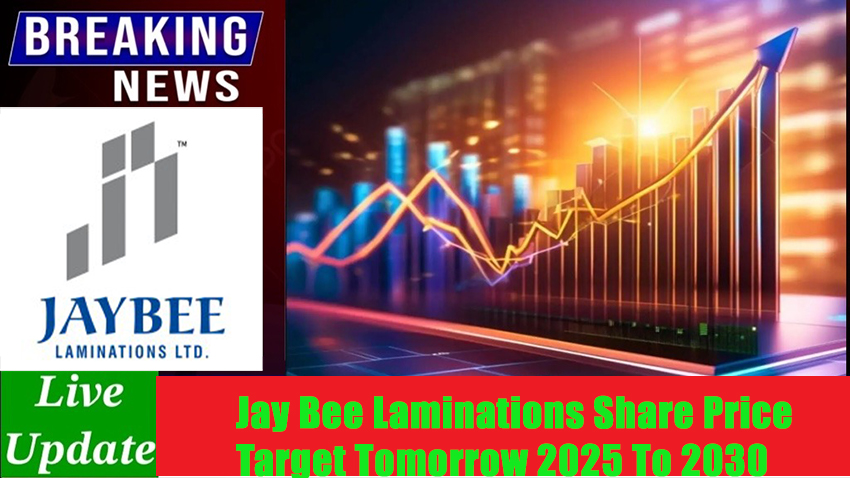Jay Bee Laminations Ltd specializes in manufacturing electrical laminations used in transformers, motors, and other industrial equipment. Known for its commitment to quality and innovation, the company serves industries such as power generation and automotive. Jay Bee Laminations has earned a solid reputation for delivering reliable and efficient products. the share price of Jay Bee Laminations on the NSE is ₹339 INR.
Jay Bee Laminations Share Price Target Tomorrow 2025, 2026, 2027, 2028, 2029 To 2030
Jay Bee Laminations Share Price Target Tomorrow 2025 ₹480, 2026 ₹670, 2027 ₹850, 2028 ₹1060, 2029 ₹1240 To 2030 ₹1455. Jay Bee Laminations Limited was established in 1988 as a manufacturer of CRGO Silicon steel cores for the emerging power & distribution transformer industry of India.
- Founded: 1988
- Headquarters: India
Jay Bee Laminations Share Price Target (2025–2030)
| Year | Share Price Target (INR) |
| 2025 | ₹480 |
| 2026 | ₹670 |
| 2027 | ₹850 |
| 2028 | ₹1060 |
| 2029 | ₹1240 |
| 2030 | ₹1455 |
| Category | Stock Market |
Jay Bee Laminations Ltd: Market Overview
| Parameter | Value |
| Opening Price | ₹344.00 |
| Highest Price | ₹344.00 |
| Lowest Price | ₹326.00 |
| Previous Close | ₹332.00 |
| Volume | 18,000 |
| Value (Lacs) | ₹58.68 |
| VWAP | ₹335.17 |
| Upper Circuit Limit | ₹348.60 |
| Lower Circuit Limit | ₹315.40 |
| 52-Week High | ₹456.00 |
| 52-Week Low | ₹225.00 |
| Market Capitalization | ₹765 Crore |
Key Factors Driving Growth 2025: ₹480
- Rising Demand in Power and Automotive Sectors: Increased demand for energy-efficient transformers and motors in industries like power generation and electric vehicles can boost growth.
- Focus on Technological Advancements: Investments in advanced manufacturing technologies and innovative designs will help maintain a competitive edge.
- Expansion into New Markets: Exploring international markets and diversifying the customer base within India can increase revenue and strengthen market position.
- Government Initiatives and Infrastructure Development: Policies supporting infrastructure development and renewable energy can increase the demand for electrical equipment.
Jay Bee Laminations Share Price Target 2026
| Year | Share Price Target (INR) |
| 2026 | ₹670 |
Jay Bee Laminations Share Price Target 2027
| Year | Share Price Target (INR) |
| 2027 | ₹850 |
Jay Bee Laminations Share Price Target 2028
| Year | Share Price Target (INR) |
| 2028 | ₹1060 |
Jay Bee Laminations Share Price Target 2029
| Year | Share Price Target (INR) |
| 2029 | ₹1240 |
Risks and Challenges for 2030
- Market Competition: Intense competition from domestic and international players in the laminations and electrical equipment sector could affect profit margins and market share.
- Raw Material Price Volatility: Fluctuations in prices of raw materials like steel could impact production costs and profitability, particularly in long-term contracts.
- Technological Disruption: Rapid technological advancements in manufacturing techniques and materials could require continuous investment to stay competitive.
- Economic and Regulatory Risks: Global economic uncertainties, trade restrictions, or unfavorable regulatory changes in key markets could affect operations and growth prospects.
Shareholding Pattern for Jay Bee Laminations Ltd
| Shareholder | Percentage |
| Promoters | 70.61% |
| Foreign Institutional Investors (FII) | 3.74% |
| Domestic Institutional Investors (DII) | 0.02% |
| Public | 25.63% |
What do Jaybee laminations do?
Jay Bee Laminations is a manufacturer and supplier of various products, including electrical laminations, slit coils, and assembled cores crafted from cold-rolled grain-oriented (CRGO) silicon steel and cold-rolled non-grain-oriented (CRNGO) steel.
Who is the owner of Jaybee laminations?
Mr. Munish Kumar Aggarwal, 62, is the Promoter, Chairman, and Whole-Time Director of the company. With 35 years of experience in the company and extensive roles in Jaybee Industries and HMTD Engineering, he brings a wealth of knowledge in the transformer industry.
Is lamination good or bad?
As lamination is made from cheap plastics, it becomes brittle over time and ends up forming cracks. Lamination also starts turning yellow or brown when it is exposed to heat and UV rays for a long time. Paint Protection films although don’t crack, some PPFs do tend to turn a bit yellow after a couple of years.
